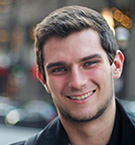 By Shantell Kirkendoll, University Communications
By Shantell Kirkendoll, University Communications
A new study reveals an interesting phenomenon that occurred during the early days of the COVID-19 pandemic: a surge in support for political leaders.
It’s known to happen during war and after a terrorist attack. But for the first time, a health crisis has triggered citizens to rally ‘round the flag and increase government support, according to a PNAS study led by the department of psychology and neuroscience in the College of Arts & Sciences at the University of North Carolina at Chapel Hill.
Drawing on political science and psychological theories, researchers examined the effect of COVID-19 cases on approval ratings through the first 120 days of 2020. What they found is that as the pandemic got worse, citizens unified around leaders tasked with addressing it.

The United States president had modest gains compared to other world leaders who on average experienced a 14-point swing in approval. U.S. governors saw 15- to 20-point gains.
But will the boost in approval in the early months of the COVID-19 pandemic have an impact on fall elections? Does support cross party lines? And how much did performance matter?
UNC-Chapel Hill study author and Ph.D. student Joshua Conrad Jackson, who studies how culture and history shape human behavior, answers a few questions about the rally effect and the COVID-19 pandemic.
By Shantell Kirkendoll, University Communications
